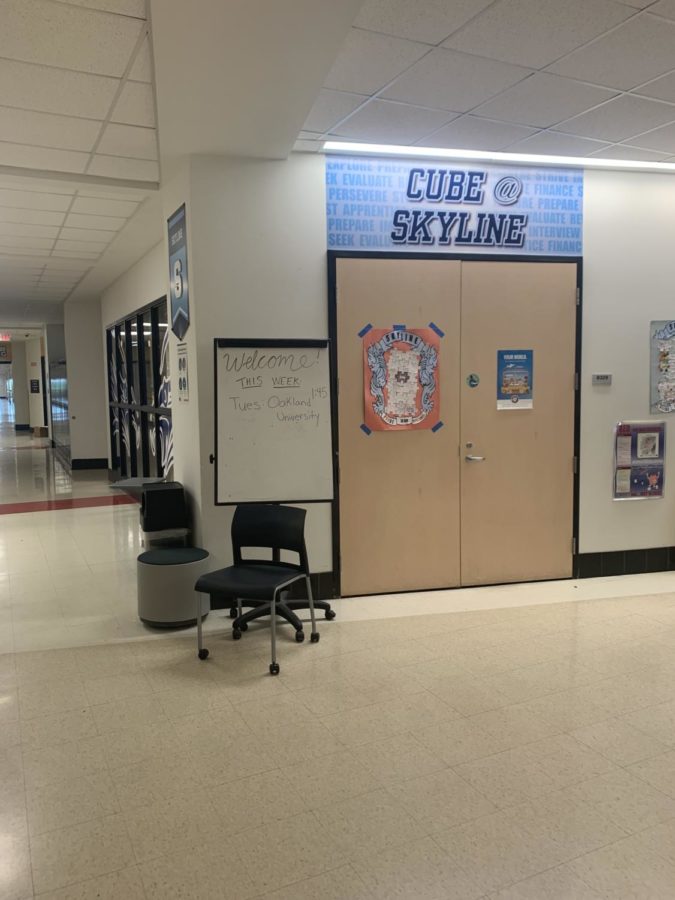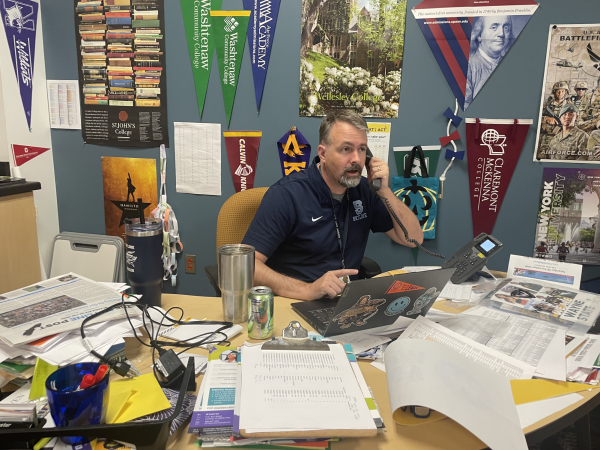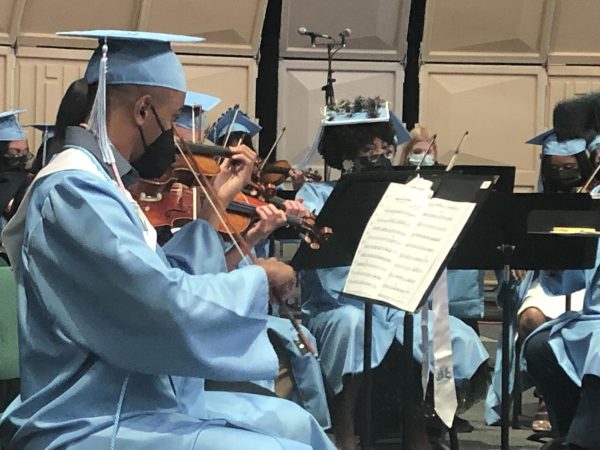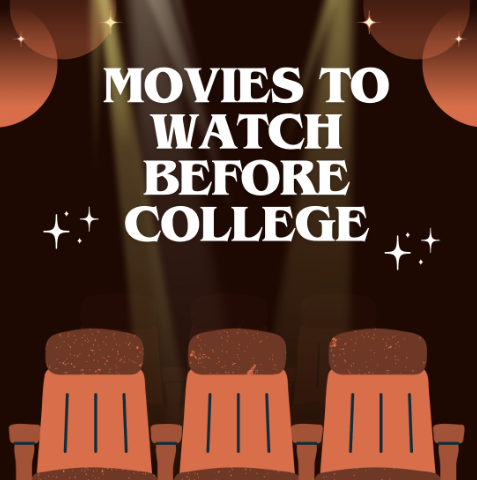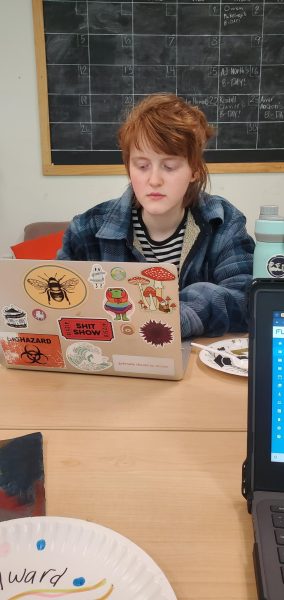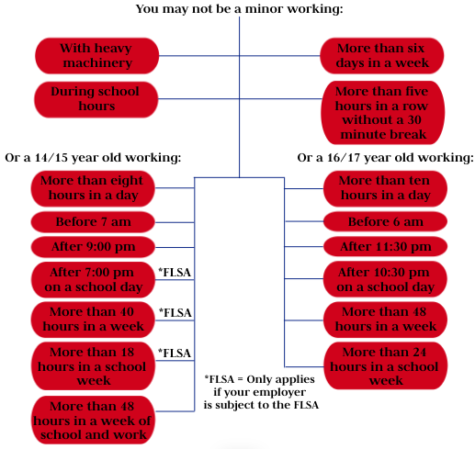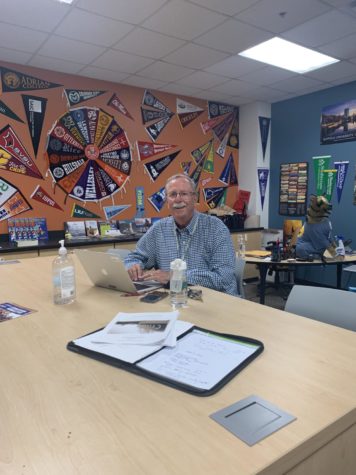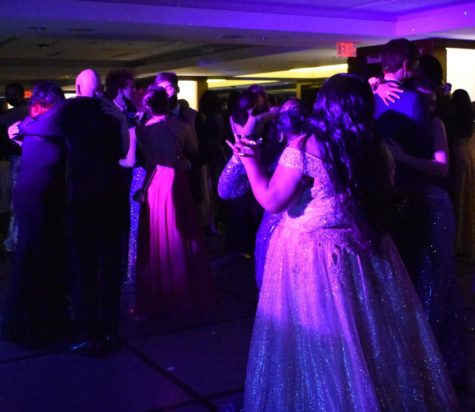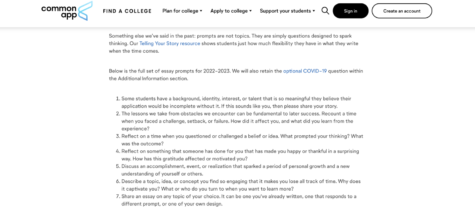CUBE Feature: What Should 9th, 10th, 11th, and 12th Graders Be Doing Now?
After almost a year and a half being closed, the College and Career Center, also known as the CUBE, has reopened and is here to help students with their post-secondary journey. John Boshoven, the new college counselor, has been a college counselor at Community High School for over two decades and has now moved to Skyline to help students. The CUBE is a place where students can receive help regarding post-secondary plans such as 2 year college, trade, internship, Co-op, 4 year college, military service, or training in your family’s business.
Many students have questions about what they should be doing each year of high school and what to focus on. The CUBE is a great place to get answers to those questions. Boshoven shared some insight with the Skyline Post into what students should be thinking about each year of high school as they get closer to graduation if they are thinking about pursuing college right after high school.
9th grade:
The first year of high school can seem intimidating as there are more people, opportunities, classes, and even some pressure. As you transition into high school, there are some things that you should keep in mind. Maintaining or improving your grade point average (GPA) is crucial for freshmen as this statistic is the first measure of performance colleges look for in prospective students.
“You want to make sure that you are not just doing well in your classes but taking the best [or] most difficult courses you can be successful in,” says Boshoven.
Why does grade point average (GPA) matter and what does it measure?
GPA is a way for colleges to see how well a student might do if they were to attend a respective college. Performance in high school is an indicator of performance in college. “It’s a track record. GPA is the first measure they look at is how they have done in their classes. Now the next thing they are going to look at is trend.” Trend means that they want to see a gradual increase in grades as the years progress.
“Colleges are looking for track record grade-wise, and they are looking for track record course-wise.” This means that colleges want to see that students are challenging themselves and taking classes that they can succeed in. If you can handle more rigor, colleges will notice that you are challenging yourself. At the same time, you should also take courses that you enjoy. For example, if you are interested in business you may be interested in taking classes through the Business, Marketing, and Information Technology (BMIT) magnet at Skyline. Magnet programs can be a great way for students to explore their interests in specific fields.
What is the magnet program?
The magnet programs allow you to explore a specialized interest in a particular subject such as business, health sciences, communications, or engineering. There are specific courses you take each year to complete the magnet program. There are certain introductory courses you can complete freshman year. The majority of magnet students apply to join a specific magnet program at the end of their freshman year. Students who are interested in some of the specific courses under the magnet can enroll without committing to the full program.
While the magnet program is a great way to learn more about specific career interests, it is important to know that selective colleges view magnet courses as elective courses. This would mean that colleges would expect students to take academic courses alongside the magnet courses. “I would say go for the magnet but continue with your hard science and math [classes]. The magnets are wonderful but they are not a substitute for the hard courses. They should be combined.”
10th Grade:
Moving into sophomore year is special in that you now have experience in high school classes and programs. In your sophomore year, you should reflect on what you liked in your freshman year and what you are good at both academically and outside of school.
“Because Ann Arbor wants you to take all the required courses, if you found that 9th courses came pretty readily to you and you did really well, [you should] consider taking more rigorous courses like AP or honors or accelerated courses. [These are] advisable if you love the subject or find it interesting.”
In addition to increasing the rigor or interest level in the courses you are taking, you should be thinking about participating in extracurriculars outside of school. One important point to note is the quality of what you are doing is more important than quantity. Over time, you want to invest your time into things that are meaningful to you and that you can be a leader in eventually.
“It isn’t what you do or how many things you do, it’s what is important to you that you are doing. Start with membership and move towards leadership. In thinking about [the] summer, maybe you start saving for college, maybe you want to have more experience with a profession you are interested in.” Examples of summer experience include enrolling in summer programs for specific careers like nursing or engineering. There are many ways to get scholarships and find inexpensive alternatives for the summer.
11th grade:
The CUBE starts to play a bigger role once you are in your junior year of high school. College applications open in August just before senior year begins. The CUBE helps by creating a list of colleges for you to apply to and research.
“We can help you come up with about 10-15 colleges that fit your needs and then you can go crazy and research them. Forming a college list should be happening during junior year and senior year of high school. At the beginning of junior year, sit down with your counselor for your junior interview, the CUBE, etc. You pick your criteria for your college atmosphere [and] build a list based on the criteria.”
In addition to thinking about college, you have to take standardized testing like the SAT and/or ACT which can play an important role in college admissions. In order to do well in the standardized tests, there are various resources you can use to improve their score including Khan academy, flashcards, and books from the library or the CUBE.
“For standardized testing, practice makes perfect. Khan academy, flashcards, and books from the library or CUBE [are resources available].”
“During junior year, take a look at an actual application. It’s sort of like a study guide a teacher gives you before a test. The Common Application which is taken by almost 900 colleges and universities [is open] to juniors. Open up an account and go through the categories they are going to ask [you] about extracurricular, academic honors and awards.”
The summer before senior year is important as most applications are due in the fall or winter of senior year. You can use the summer to learn more about the subjects you are interested in by reading online, visiting, or taking programs through the institution that you are considering. In addition, making time for college visits is a great way to see what type of college would be best for you.
“If you are trying to apply to a highly selective college, I suggest going to a summer program that the college sponsors, not one they host. So there [are colleges] that host college courses and rent the dorms at MIT, but that [doesn’t make it] an MIT program. MIT offers three programs for high school students. So if you are looking to go to MIT, go to one of the MIT programs such as MITES or the Mighty MITES. If you stand out in [the college] class you might be able to get a recommendation letter from a faculty member from the university. Keep working if you work and sometimes there are labs [for research] if you are a science-oriented person. Those [labs] are pretty interesting because you can get good recommendations.”
An example of a lab experience may be helping a professor or graduate student prepare slides for an experiment and organize or enter data for the lab. The graduate student or professor will be able to see how you work and may be willing to write you a strong letter of recommendation.
12 grade:
Senior year is when you start applying to colleges and should be focused on completing the requirements for the application process. Typically, college essays take the most amount of time and are the hardest step for seniors to complete.
“If you have done some work leading into senior year [on your application it can be beneficial]. The [Common Application] questions are out right now for next fall.”
In addition to the Common Application, there are other platforms students can apply to such as the Coalition application site. Common Application is one of the more popular sites to apply through as they have a large number of colleges that use the platform.
As the end of senior year approaches, it is crucial to keep your grades up as colleges will check final grade reports after graduation and can rescind their admission offer if you are not meeting their academic standards.
“[During the fall of your] senior year you have to fill out that application FAFSA (Free Application for Federal Student Aid). The application is free. Sometimes the state university is not the cheapest deal and sometimes private colleges can get more money for students. Keep your grades up.” The CUBE will assist students in filling out paperwork for financial aid and other college related questions throughout the year.
In addition to the FAFSA, some colleges also require the College Scholarship Service (CSS) profile through the College Board. This is another way colleges assess your financial need for college.
In addition to financial aid, there are other ways to get money to pay for college including work-study, scholarships, and grants. The CUBE has various resources that can help you find the right types of scholarships and opportunities for you. Below are some links for scholarships and information on how to pay for college.
Links and Resources:
College Application Process : https://bigfuture.collegeboard.org/…/get-organized/college-application–checklist, https://www.scribbr.com/college-essay/applying-for-college, https://www.khanacademy.org/…/a/college-application-checklist, “Solving the College Admissions Puzzle,” by John Boshoven, Merion and Markel, $15 in the CUBE
Financial Aid: These days, paying for college is no easy feat. As college costs continue to rise— and, subsequently, disreputable companies and individuals attempt to cash in on these rising costs with scholarship scams—college-bound students and their parents have much to contend with. Real Costs: A year at most colleges, especially if living costs are included, starts at about $11,000 and can exceed $65,000. The Good News: If you need financial aid to help meet college costs, you are likely to receive it. Scholarships, too, can help pave the way to higher education. Seven Easy Steps: The following seven steps will make the process of affording higher education a little less stressful and a lot less overwhelming. Just remember to take it one step at a time. https://hub.nacacnet.org/NC__Product?id=a181a000001ndsoAAA
Scholarships: Check out the Scholarships in your AAPS Naviance account. Other sources can include the colleges themselves, fastweb.com, scholarships.com, finaid.org
Your donation will support the student journalists of Skyline High School. Your contribution will allow us to cover our annual website hosting costs.
Anisha is a senior at Skyline and currently helps with graphics and writes about current events at Skyline. She likes to spend time outside when it's warm...

